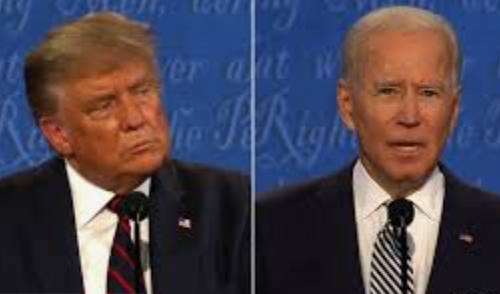Most indications are that the Republicans will retake control of the Senate by a narrow margin in Tuesday’s midterm elections (although it’s possible that the matter will not be decided until December or January).
This would give the Republicans control of both houses of Congress.
The reasons for this are fairly straightforward: The party that occupies the White House (Republican or Democrat) nearly always loses seats in midterm elections. (In the sixth year of Ronald Reagan’s administration, it was the Democrats who won big and regained a majority in the Senate.) Many of the Senatorial races are in Republican-dominated “red states” which Barack Obama failed to carry in 2008 and 2012. Turnout among Democratic supporters (minorities, young people, single women) tends to drop off in midterm elections. Despite a slowly but steadily improving economy– which, remember, essentially crashed at the end of the Bush administration– many Americans are not feeling particularly secure in terms of employment or income. (It’s Republicans who have blocked a minimum wage increase, job-creating infrastructure improvements and changes to the labor laws that currently favor employers over unions.)
In terms of actual policy, a Republican majority in the Senate won’t make much difference. The Republicans won’t have the three-fifths majority needed to overcome Democratic filibusters and President Obama will veto legislation that would undercut the Affordable Care Act or any of his other programs. The one area where a Republican majority may have some serious effects is in confirmation (or more likely non-confirmation) of Obama’s appointments to federal agencies and the courts.
Even though it’s two years away, I’m going to go out on a limb and predict that the Democrats will return to a majority in the Senate in the 2016 elections. In that year it will be mostly Republicans defending vulnerable seats. And with a presidential election on the ballot, the turnout from the Democratic base will be much higher.
In essence expect even more gridlock, posturing and irrelevant nastiness in Congress in the two years to come.
And when it comes to matters such as climate change, expect even more Republicans in Congress and elsewhere to explain that they are not scientists. (Considering how often Republicans say this, it must be written down in the GOP Playbook.)
Gov. Rick Scott of Florida, a Republican who is fighting a Democratic challenge from former Gov. Charlie Crist, was asked by The Miami Herald if he believes climate change is significantly affecting the weather. “Well, I’m not a scientist,” he said.
Senator Mitch McConnell of Kentucky, who is locked in a tight re-election race, was asked this month by The Cincinnati Enquirer if he believes that climate change is a problem. “I’m not a scientist,” he said.
House Speaker John A. Boehner, when asked by reporters if climate change will play a role in the Republican agenda, came up with a now-familiar formulation. “I’m not qualified to debate the science over climate change,” he said.
“I’m not a scientist,” or a close variation, has become the go-to talking point for Republicans questioned about climate change in the 2014 campaigns. In the past, many Republican candidates questioned or denied the science of climate change, but polls show that a majority of Americans accept it — and support government policies to mitigate it — making the Republican position increasingly challenging ahead of the 2016 presidential elections.
I was particularly impressed by Louisiana Governor Bobby Jindal’s variation on that evasion when he was asked if he accepts the theory of evolution.
The Republican Jindal, who graduated from Brown University with a degree in biology, responded: “I was not an evolutionary biologist.”
Update: And scientists deny being Republicans.


